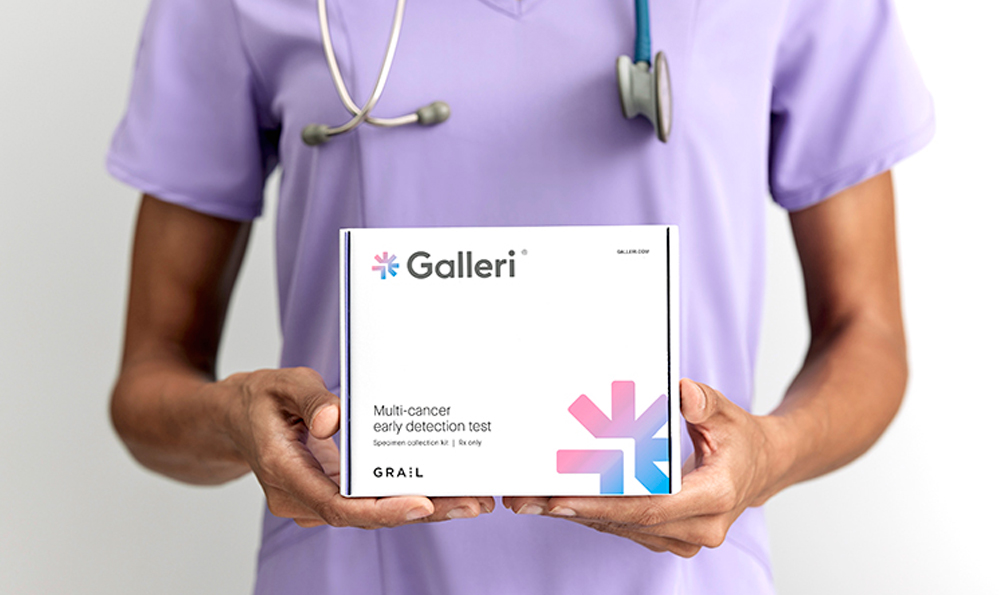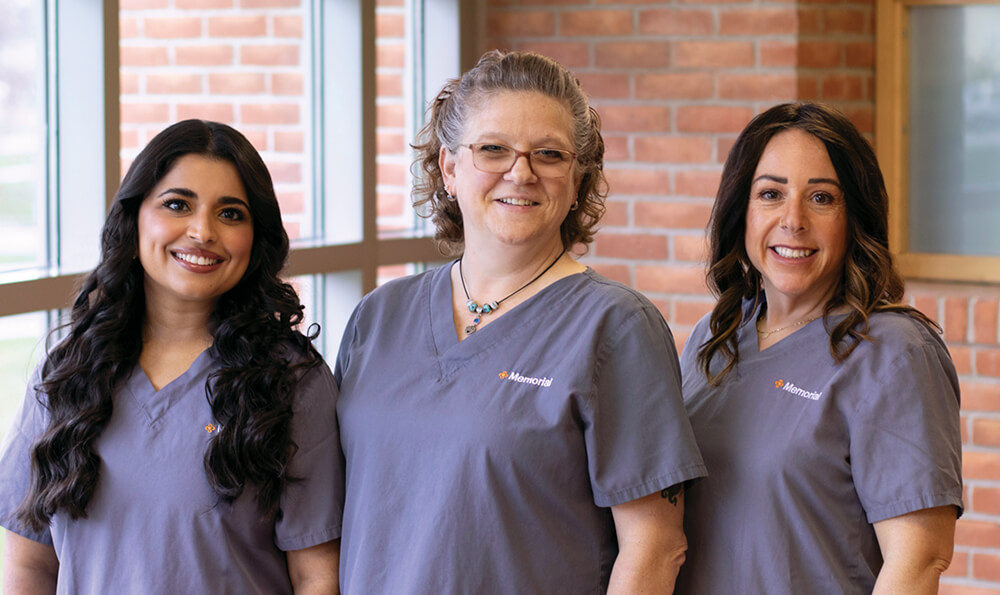Health & Wellness

First Health System in Central Ohio Region to Offer Galleri® to Eligible Patients
Memorial Health today announced the availability of Galleri®, a multi-cancer early detection (MCED) blood test that can detect a signal shared by more than 50 types of cancer, to eligible patients of Memorial Medical Group primary or specialty care practices. Memorial is the first health system in the region to offer the test to patients.
“Screening for cancer is important, because when cancer is found in early stages, treatment is more likely to be successful. However, many cancers are still detected too late, after a person develops symptoms, and the cancer has spread,” comments Kevin P. Henzel, MD, Memorial Internal Medicine, and the physician who championed for availability of the Galleri test at Memorial.
“We are thrilled to offer our Memorial primary and specialty care patients the Galleri blood test, which can screen for multiple cancers at once, many of which lack recommended screening tests today. The test can also alert you to hard-to-detect, aggressive, and often fatal types of cancer like pancreatic, ovarian, and esophageal cancers. Memorial believes multi-cancer early detection tests like Galleri are the new front for the war against cancer,” adds Henzel.
The Galleri test is a first-of-its-kind MCED blood test. In a clinical study, the Galleri test demonstrated the ability to detect a signal in the bloodstream shared by more than 50 types of cancer. When a cancer signal is detected, the Galleri test predicts the cancer signal origin, or the tissue or organ associated with the cancer signal, with high accuracy to help guide the next steps to diagnosis. The Galleri test requires a prescription from a licensed health care provider and should be used in addition to recommended cancer screenings such as mammography, colonoscopy, prostate-specific antigen (PSA) test, or cervical cancer screening. It is recommended for use in adults with an elevated risk for cancer, such as those aged 50 or older.
Memorial is providing access to the Galleri test to patients who meet the eligibility requirements:
- An established patient of a Memorial Medical Group primary/specialty care practice
- Those who are at an elevated risk of cancer, such as individuals ages 50 or older
- For patients younger than 50, it is recommended to speak with your Memorial provider. They will review your medical history and risk factors and determine if you are eligible for the test.
- Not currently pregnant
- Not currently undergoing active cancer treatment and have completed cancer treatment at least five years ago (excludes basal or squamous cell carcinoma of the skin).
Henzel continues, “The process for our patients is easy and seamless. First, we recommend a discussion with your healthcare provider at Memorial about your risk for cancer, and whether the Galleri test is right for you. If your provider determines it is appropriate for you, a simple blood draw will be completed at the office/laboratory (no preparation or fasting is required) and your doctor will provide details on what the test may indicate.”
“From there, your provider will reach out when your results are ready – about two weeks after your blood draw. They will share and discuss your results, as well as coordinate any follow-up diagnostic evaluation if needed,” adds Henzel.
Insurance does not typically cover the test at this time, but payment plans are available – ask your Memorial provider for more information. This multi-cancer early detection test should be used in addition to U.S. guideline-recommended annual cancer screenings.
More details regarding the Galleri multi-cancer early detection (MCED) blood test are available here.
About Galleri®
The earlier that cancer is detected, the higher the chance of successful outcomes. The Galleri multi-cancer early detection test can detect a shared cancer signal across more than 50 types of cancer, as defined by the American Joint Committee on Cancer Staging Manual, through a routine blood draw. When a cancer signal is detected, the Galleri test predicts the cancer signal origin, or where the cancer is located in the body, with high accuracy to help guide the next steps to diagnosis. The Galleri test requires a prescription from a licensed health care provider and should be used in addition to recommended cancer screenings such as mammography, colonoscopy, prostate-specific antigen (PSA) test, or cervical cancer screening. It is intended for use in people with an elevated risk of cancer, such as those aged 50 or older.
For more information about Galleri, visit galleri.com.
Important Galleri Safety Information
The Galleri test is recommended for use in adults with an elevated risk for cancer, such as those aged 50 or older. The Galleri test does not detect all cancers and should be used in addition to routine cancer screening tests recommended by a healthcare provider. Galleri is intended to detect cancer signals and predict where in the body the cancer signal is located. Use of Galleri is not recommended in individuals who are pregnant, 21 years old or younger, or undergoing active cancer treatment.
Results should be interpreted by a healthcare provider in the context of medical history, clinical signs, and symptoms. A test result of “No Cancer Signal Detected” does not rule out cancer. A test result of “Cancer Signal Detected” requires confirmatory diagnostic evaluation by medically established procedures (e.g., imaging) to confirm cancer.
If cancer is not confirmed with further testing, it could mean that cancer is not present or testing was insufficient to detect cancer, including due to the cancer being located in a different part of the body. False-positive (a cancer signal detected when cancer is not present) and false-negative (a cancer signal not detected when cancer is present) test results do occur. Rx only.
Laboratory/Test Information
GRAIL’s clinical laboratory is certified under the Clinical Laboratory Improvement Amendments of 1988 (CLIA) and accredited by the College of American Pathologists. The Galleri test was developed, and its performance characteristics were determined by GRAIL. The Galleri test has not been cleared or approved by the U.S. Food and Drug Administration. GRAIL’s clinical laboratory is regulated under CLIA to perform high-complexity testing. The Galleri test is intended for clinical purposes.



